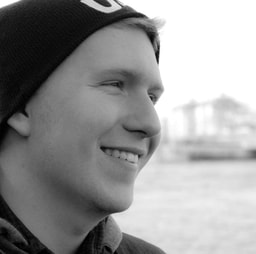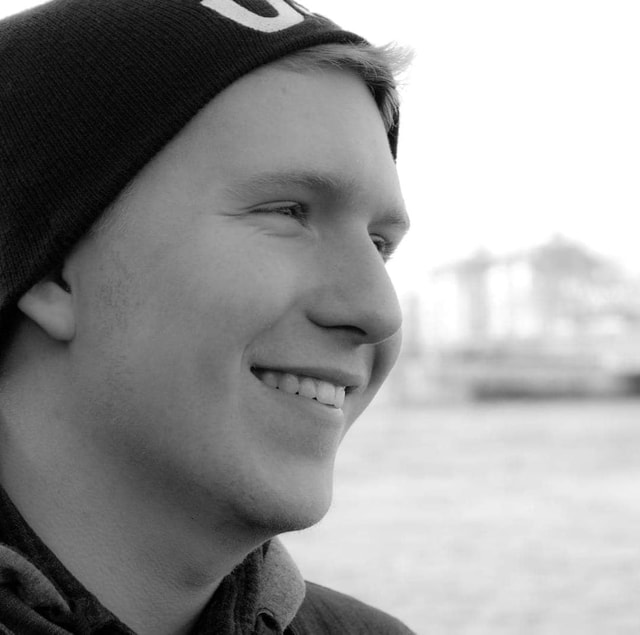Red Cross criticized for not doing more in Ukraine

A March 24 letter to the International Committee of the Red Cross (ICRC), authored by influential Ukrainian civil society members and bearing over 3,800 signatures, criticized the humanitarian body for not doing enough to help Ukraine.
The appeal accused the ICRC of prematurely pulling out of the encircled city of Mariupol, not working hard enough to reach hotspots and even taking Russia’s side.
Despite its wide circulation in Ukraine and abroad, the call for action went unanswered by the ICRC while at least one of their advisors argued on social media that the accusations were unfair.
The letter is the latest criticism leveled against the organization. Members of the Ukrainian government have repeatedly questioned the ICRC’s commitment to helping Ukrainian civilians, citing the aid organization’s close cooperation with Russian authorities and a lack of communication with Ukrainian ones.
In a televised interview, Ukrainian Ombudsman Lyudmyla Denisova stated that now she believed that the ICRC was working "in concert" with Russia against Ukraine's interests, a claim the ICRC strongly refuted.
A complicated neutrality
According to the ICRC’s mandate, which is provided for by the Geneva Conventions, the organization is bound to complete impartiality while carrying out humanitarian support for civilians, wherever they may be. That's a difficult task, as members of the organization must often operate on both sides of fluid and fast changing frontlines.
“Our approach worldwide is to work based on the needs of people wherever they are… We do so in an impartial and neutral way. This means that our aid is not political support,” a spokesperson from the ICRC told the Kyiv Independent.
Purely apolitical humanitarian support, however, is rarely achieved.
In the organization’s nearly 160-year history, the principle of wartime neutrality has sometimes led it to turn a blind eye to crimes that contravene its founding principles.
During the horrors of the Second World War, officials from the ICRC visited the Theresienstadt and Drancy concentration camps, “model ghettos” designed to fool international delegates into believing the Holocaust was not taking place. Upon seeing the “beautified” concentration camps, ICRC delegates wrote a favorable report about the camps.
As a result of the visits, ICRC officials attempted to “disprove” reports about the Holocaust and further inspections of camps were canceled, leading to the deaths of another 6,500 when other “model” camps were liquidated. The ICRC has “publicly expressed its regret” about this costly neutrality.
Forced deportations
Now, the ICRC’s neutrality is under scrutiny again.
Ukraine has accused ICRC officials of effectively siding with Russia in its decision to open a new office in Rostov-on-Don, a city where “filtration camps” have been established to welcome Ukrainians who are being forcibly deported to Russia.
Accusations of Russian war crimes in Ukraine are beginning to be widely investigated. Both Latvia and Estonia have officially recognized the presence of a new genocide on European soil, committed by Russian troops against Ukrainian civilians.
Mykhailo Radutskyi, chairman of the public health committee in Ukraine's parliament, appealed to the ICRC to not “legitimize” forced deportations by opening its office across the border from Ukraine.
The ICRC spokesperson affirmed that their aid in Russia was “not justifying any act seen in conflict, or legitimizing any government or group.” The ICRC claims that it has not yet seen evidence of forced deportation, and would not publicly comment on these allegations.
Images taken by Reuters on May 1 show ICRC staff assisting refugees from Mariupol into camps in the Russian-occupied village of Bezimenne, near Mariupol.
The President of the European Committee for the Prevention of Torture and former member of the Editorial Board of the International Review of the Red Cross, Mykola Gnatovskyy, said that the ICRC is acting appropriately in these evacuations.
“Such situations are not unprecedented,” Gnatovskyy explained. “There is ample jurisprudence from the International Criminal Tribunal for the Former Yugoslavia (ICTY) confirming that the involvement of a humanitarian organization such as the ICRC does not render the deportation lawful.”
Some, however, believe that the ICRC is falling back on its neutral status at the cost of Ukrainian lives.
Tetiana Lomakina, an advisor on humanitarian corridors to the President of Ukraine, noted that she had not seen evidence that the ICRC was providing any help for Ukrainians who had been forcibly deported.
The ICRC’s mandate provides for assistance in facilitating the return of forcibly displaced citizens and ensuring the rights of those who want to leave Russia.
“Based on their previous record, they are able to do (these things). As for their programs now, there are questions again. We hope that they will be looked into soon,” she said.
Accusations
The discourse between Ukrainian officials and members of the ICRC has soured over the course of the war.
In a video address on March 8, President Volodymyr Zelensky complained publicly that the ICRC has forbidden the use of its symbols from Ukrainian vehicles carrying out critical humanitarian missions in Ukraine, especially during the evacuation of students from universities.
“I was told that the Red Cross, the International Red Cross, prohibits us from using the emblem on vehicles carrying out humanitarian missions,” Zelensky said.
By preventing Ukraine’s use of the easily recognizable red cross symbol, which are permitted to be used by humanitarian missions, Zelensky stated that the ICRC had endangered Ukrainians.
“The Red Cross prohibits this as if it is their property, and this is significant. That some people, very influential people, have decided to put a ‘cross’ on Ukrainians. But I shall not allow this, we shall not allow this,” he said.
The ICRC upheld this decision, having previously warned of Ukraine’s “misuse” of its symbols following Russia’s illegal annexation of the Crimean Peninsula. In an interview with RBK-Ukraine, Head of the ICRC’s delegation to Ukraine Pascal Hundt, in response to alleged misuse of the symbols by Ukrainian humanitarian teams, stated that the use of the symbol jeopardized its “protective function” when used by “warring parties and armed individuals.”
Later, the March 24 open letter provoked a string of high profile arguments between its signatories and ICRC staff.
In an interview with Ukrainskaya Pravda on April 4, representative of the ICRC in Kyiv Gerard Pontrandolfji stated that there have been “attempts on both sides to shift responsibility for human security to the ICRC and the Ukrainian Red Cross,” in reference to the letter.
The organization has also gone on the offensive, claiming to have been the victim of “deliberate, targeted attacks using false narratives and disinformation to discredit the ICRC.”
This, Lomakina says, is testament to a lack of transparency on the part of the ICRC.
“We are negotiating to protect the lives of our citizens. The whole world is raising funds to help Ukrainians through the accounts of the ICRC,” the advisor explained.
The ICRC will spend over $260 million on the Ukrainian humanitarian crisis this year, but has not said how much of that funding will be spent on projects in Russia.
Many Ukrainians have called for a boycott of the ICRC after it funded the project in Russia. The ICRC spokesperson has confirmed that, despite international pressure, it has no intention of abandoning the project to open an office in Rostov-on-Don.
“That is why we demand to discuss our needs with them — it is about inclusiveness. Instead of opening offices, they should be opening assistance programs for Ukrainians. It’s all about transparency,” Lomakina said.
Absence from war-torn cities
In areas where it is present, the ICRC has made a large impact.
The organization didn't just provide vulnerable people with food, shelter, and medicine. It also supplied water utilities in eight cities with 1,000 tons of chlorine and fixed their damaged infrastructure.
The ICRC has also offered cash support to 250,000 displaced and vulnerable Ukrainians living in areas affected by the war.
“Some high quality work by the ICRC staff is being carried out in safe or liberated areas,” Lomakina wrote.
However, she and other Ukrainians have taken the organization to task for its notable absence from the worst-hit areas, including Mariupol, Kherson, Kharkiv, Izyum and Volnovakha. .
“Do convoys led by the ICRC vehicles go to these places?" she said. "Were there programs in Irpin and Bucha when they desperately needed it during the fighting there? You know the answers without me.”
“We have never met the ICRC along the way,” said Ulyana Tokareva from the Council of Women of the Donetsk Oblast, who stepped in to support evacuations and food deliveries in Mariupol in lieu of the UN and the ICRC.
ICRC staff fled Mariupol on March 15, citing a lack of supplies. Since then, the ICRC has been unable to organize regular humanitarian corridors to the city.
The ICRC, Pontrandolfji says, is only able to operate when both sides respect humanitarian law. Russia has repeatedly broken ceasefire agreements and refused to stop shelling.
It is not clear how the ICRC intends to help citizens when Russia repeatedly breaks international law.
After the failed evacuations of early March, Mariupol residents reportedly stopped receiving information from the ICRC. Tokareva’s team was able to organize self-evacuations when the aid organizations disappeared.
“Humanitarian convoys are heading to besieged towns and villages accompanied by representatives of the State Emergency Service of Ukraine. In accordance with international standards of work in combat zones, there must be ICRC personnel, their vehicles, their humanitarian aid,” Lomakina said.
On May 1, the first joint UN-ICRC convoy managed to evacuate around 100 civilians trapped in the bunkers beneath Mariupol's Azovstal factory area, the last Ukrainian-controlled part of Mariupol. Further evacuations, however, were frustrated by Russian shelling.
A spokesperson for the ICRC said that they are “ready to do much more,” but could not risk the lives of civilians when there are no security guarantees in place.
According to the United Nations, the humanitarian situation in Mariupol has deteriorated significantly in recent days. Ukrainian authorities have suggested that up to 22,000 residents have been killed and up to 100,000 still remain in the city, including about 1,000 at the encircled Azovstal.
“We hardly see (ICRC support) in the humanitarian corridors of Ukraine. There is no ICRC whatsoever in Mariupol,” Lomakina said.










